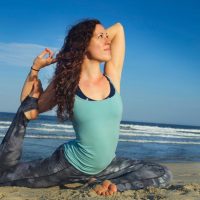
If you’re like me, you’ve probably sought out every podcast, article, and YouTube video on how to deal with the unimaginable burden of being vegan in a non-vegan world.
If you’re like me, you’ve probably also felt let down by the many people who reduce the overwhelming emotions in response to the ubiquitous acceptance of animal cruelty and exploitation as…a phase.
Being vegan means slowly, or maybe all at once, shedding oneself of the social conditioning that animals are void of their own will and desire to live, and they are here solely for humans to do with them whatever we please.
It means waking up from the illusion that animals are objects who don’t feel.
It means realizing we’ve been lied to since we were born about what really happens.
It means grappling with the fact that no one has been brave enough to sit us down and show us the truth and let us decide for ourselves how we want to move forward. Instead, we had to find out the truth for ourselves, and watch how this truth continues to be hidden, twisted, and disregarded by the masses.
But find out we did, whether through our own connecting the dots, persistent messaging from activists, or watching one of the various documentaries revealing the behind-the-scenes of slaughterhouses. Well-known vegan educators such as Melanie Joy and Clare Mann speak to the appropriateness of PTSD and Secondary Traumatic Stress as outcomes of waking up from the matrix that is our cultural acceptance and deliberate ignorance of the cruelty and abuse toward animals.
Ask anyone you know, and the answer will probably be unanimous. Watching animals be slaughtered and turned into “food” is disturbing. So when we talk about being enraged, in despair, and wanting to shout about this from the rooftops, why do so many people say it’s “just a phase?!”
I’ll tell you my theories.
One, none of us is exempt from people-pleasing. It’s in our DNA to belong and remain part of the pack. Straying from the dominant rhetoric, which is condoning animal exploitation, is a threat to our survival, or so our limbic system tells us. It feels safer to believe our struggle will soon pass and we’ll soon fit back in with the majority.
Two, being seen as sensitive is equated with weakness. We’ve been taught to cover up our emotions because other people are uncomfortable with their own. Our appropriate response of detest for the way such violence is normalized is shut down by our culture’s aversion to feeling. We are sensitive, not weak. Showing our sensitivity is being vulnerable. Ask anyone who follows the work of Brené Brown—vulnerability is not weakness. Vulnerability is courage.
Three, maybe we just haven’t yet found our art—our unique way of turning our pain into purpose. Our pain is with us not to be overcome, but to be transformed into something that will bring healing and illumination to the world. Each of us has a unique and valuable way to deliver the message of healing and love, based on our unique life experiences.
Instead of being afraid of the burden we carry as a minority opposed to the exploitation of animals, instead of boiling it down to a phase we’ll grow out of once we’re less naive and more hardened to the reality of our cold world, let’s lean into it. Let’s have compassion for the pain we feel as we become aware of the pain our animal friends are subject to every moment of every day.
Let’s look with an open heart at how we can be a lighthouse, a bridge for our world to come back to its compassion. This way, we can also be that reservoir of hope and refuge for others as they start to discover the truth for themselves. We’ll hold space for their heavy hearts until they can turn their pain into purpose, and be that lighthouse in their own way, exactly where it’s needed in this world.
For support and resources in understanding and navigating the challenges that come with being vegan in a non-vegan world, visit this website: Center for Effective Vegan Advocacy
~
View this post on Instagram










Read 0 comments and reply